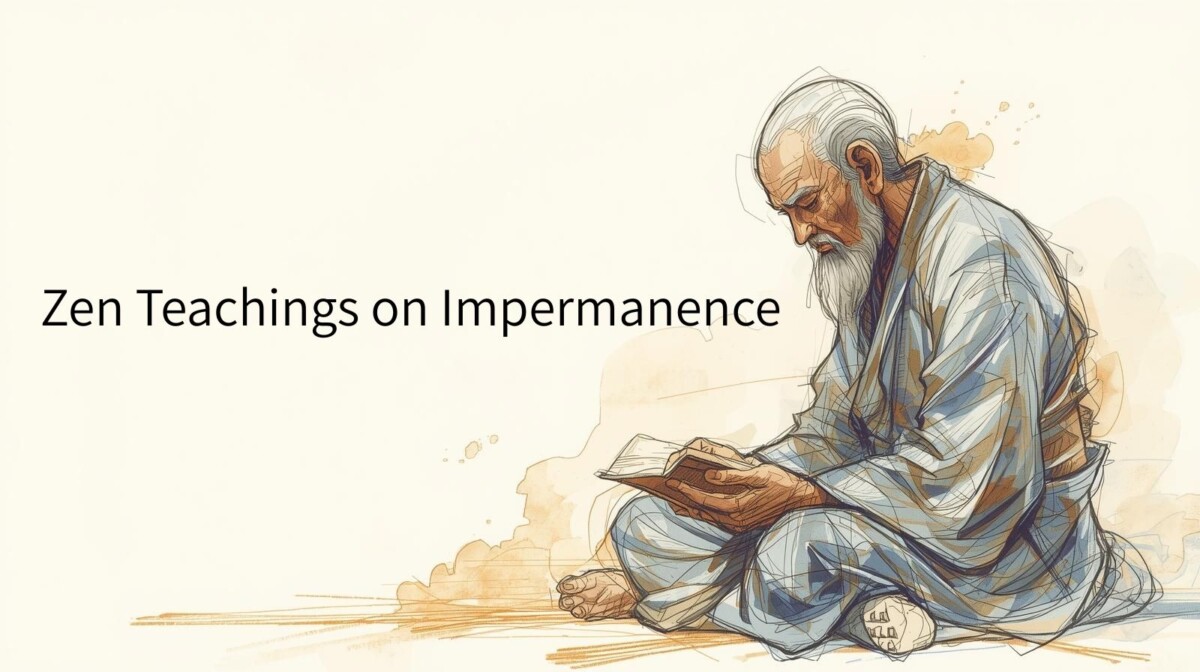
Zen Teachings on Impermanence
Introduction: Nothing Lasts, and That’s Okay
In a world that values control and permanence, the Zen view of life can feel radical.
According to Zen teachings, impermanence (無常 mujo) is not a flaw in the universe — it’s its most essential truth.
Everything changes. Everything passes.
And yet, that very transience is where freedom and peace can be found.
What Does Impermanence Mean in Zen?
In Zen Buddhism, impermanence is not just a concept — it’s a lived experience.
We don’t just study change; we sit with it. We feel it in every breath, every falling leaf, every moment that passes.
Zen master Dōgen wrote:
“Impermanence is Buddha-nature.”
This doesn’t mean life is meaningless. It means that change is the very fabric of reality — and awakening is learning to move with it rather than fight it.
Why We Struggle with Change
Modern life is built around the illusion of stability: permanent jobs, unchanging identities, forever relationships. But reality always shifts beneath our feet.
We fear change because we think it means loss. But Zen teaches that clinging is the source of suffering — not the change itself.
This insight is especially relevant today, in an age of:
-
Eco-anxiety about the changing planet
-
Digital minimalism as a response to constant overload
-
Emotional resilience training to deal with uncertainty
The world is catching up to what Zen has long known: impermanence is not the enemy — it is the teacher.
How to Practice Impermanence in Daily Life
1. Observe Without Holding
Whether it’s a feeling, a sunset, or a relationship — practice seeing it for what it is, not what you want it to be.
2. Let Go Gently
Start small. Delete old photos. Recycle clothes you don’t wear. Make space — not just in your closet, but in your mind.
3. Sit with Change
In meditation, notice how your body shifts, your breath changes, your thoughts come and go. This is the direct experience of impermanence.
4. Use Ritual
In Zen, bowing or ringing a bell marks transitions — small reminders that nothing stays fixed. What rituals can you create in your life?
Trend Connection: Impermanence as a Modern Mindfulness Tool
From the rise of decluttering movements to the popularity of apps that track daily mood changes, we’re starting to accept what Zen has taught for centuries: that awareness of impermanence builds calm, clarity, and compassion.
Psychologists now teach radical acceptance as a method to cope with anxiety and grief — a practice that mirrors Zen’s embrace of mujo.
And in the creative world, “embracing the process over the product” has become a mantra. Whether you’re a startup founder or an artist, impermanence is no longer a threat — it’s the path forward.
Final Thoughts: Nothing to Hold, Everything to Feel
Zen doesn’t ask us to detach from life. It asks us to show up fully — knowing that everything we love will change.
Instead of resisting impermanence, we bow to it.
We walk beside it.
And in doing so, we find a deeper kind of peace — one not based on holding, but on letting go.
Because in the flow of change, you are not lost.
You are exactly where life is.
💬 Want to explore more Zen wisdom for real life? Visit zen-for-life.com for articles, reflections, and mindful tools.
🌿 Want to go deeper into Zen and mindful living?
Explore ZEN for LIFE — a gentle guide to bringing presence, simplicity, and calm into your everyday routine.
Now available on Kindle.










この記事へのコメントはありません。